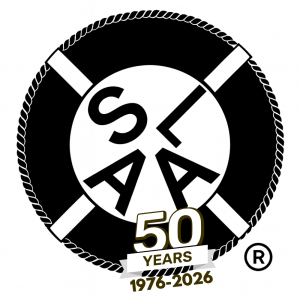What is a Copyright?
Copyright is a type of intellectual property that gives its owner the exclusive right to make copies of a creative work, usually for a limited time. The creative work may be in a literary, artistic, educational, or musical form.
Who owns the Copyright?
The Augustine Fellowship, S.L.A.A., Fellowship-Wide Services, Inc.
Is a Copyright Notice necessary?
The Copyright notice is not required by law. However, having one helps protect F.W.S.’s creative content.
What is the benefit of having a Copyright Notice?
Having a Copyright Notice puts the public on notice that F.W.S. content is protected and copyrighted.
What types of content should have a Copyright Notice?
Original works F.W.S and its Committees create and wish to protect as its own should have a copyright notice. This includes artistic works (such as graphic design and product design), literary works (such as documents, pamphlets, flyers, books and booklets, blog posts and website content), audio and video content, software, and other creative works.
Are the Copyrights registered?
Yes, at the U.S. Copyright Office and the Electronic Copyright Office (eCO) Registration System.
What is the Copyright statement of rights?
The “statement of rights” is where F.W.S lets people know what rights are held onto with the copyright. The F.W.S. statement of rights is “© 1997-2021 The Augustine Fellowship, S.L.A.A., Fellowship-Wide Services, Inc. All rights reserved.”
Usage Disclaimer
- All Rights Reserved. F.W.S keeps all rights to the material.
- All material and its contents in any format or medium are copyrighted and protected by the U.S. and International copyright laws.
- Reproduction, transmission, or distribution in any format or medium of the copyrighted material is expressly prohibited.
- Allowance is made for fair use for purposes referenced and provided for in section 107 of the U.S. Copyright Law. Fair use is a use permitted by copyright statute that might otherwise be infringing.
- Copyright infringement is a violation of federal law subject to criminal and civil penalties.
- The material and content in any format or medium is for general information purposes only. Do not rely on any material, content, or information as a basis for medical, business, legal, or other decisions.


